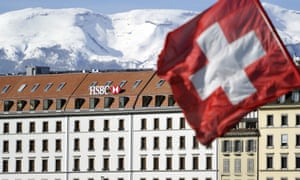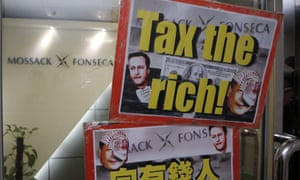Getting fired can be a real shock to the system.
But there are usually signs that your termination is pending. You've just got to know where to look.
Maybe your boss is out to get you. Maybe you've been embroiled in some recent controversy at work. Or maybe your organization is undergoing a massive transition or merger.
Either way, it helps to be prepared.
Lynn Taylor, a national workplace expert and the author of "Tame Your Terrible Office Tyrant: How to Manage Childish Boss Behavior and Thrive in Your Job," tells Business Insider that the savviest professionals always keep an eye out for the classic signs that their job is in danger. This way, if and when they notice red flags popping up, they can attempt to turn the tides before it's too late.
Here are 23 signs you may be getting the boot:
You receive a bad performance review (or two, or three)
A negative evaluation is not always synonymous with being fired, but, in conjunction with other bad feedback, it can mean trouble, says Taylor. "Your employer needs to create a paper trail, so along with warnings, your employer will use a performance review to document the problem areas."
More than one poor performance review in a row is an especially bad sign, adds Michael Kerr, an international business speaker and author of "The Humor Advantage."
"Depending on how bad your first performance review was, you may be given a chance to make corrections and improve, but a series of critical performance reviews could be a major sign that your job is in jeopardy," Kerr tells Business Insider.
If it's because of a lack of experience or lack of training in a certain area, then there's always a chance to fix it. But critical phrases to be mindful of during performance reviews include, "You're not a good fit for our culture," "You're not a team player," "Your personality or style doesn't seem to mesh with the team," or "You have a major attitude problem."
"If you hear any of these types of criticisms then it's time to break out your résumé, since it's often assumed that attitudinal issues are deeply engrained and unfixable," he says.

You're left out of the loop
If it's suddenly hard to access important data that would help you perform well in your job, or you're not invited to important meetings or included on key emails, a pink slip may be coming your way, says Taylor.
"There could be other reasons for this happening, but certainly one may be that your leadership has lost the trust or confidence in your abilities, making you vulnerable when and if layoffs happen," Kerr says.
Your job has become mission impossible
"When you first assumed the role, you had your marching orders and could accomplish them. Now it seems that you're tasked with projects akin to climbing Mount Everest blindfolded," says Taylor.
"You're being set up to fail," Kerr explains. "Sometimes this is due to lousy leadership, but occasionally it can be because a company wants to get rid of you, but they need solid evidence to do so, and setting you up for disaster is one way of getting the 'proof' you longer belong there."
Your boss has 'warned' you (more than once)
Formal warnings are never a good thing. "You may have received a verbal warning, a written warning, and maybe even a second written warning," says Taylor. If you have, know that more bad news may be coming your way.
Your relationship with your boss has deteriorated
You used to be friends (or friendly, at least) -- but now there's tension whenever you're in the same room. "Once your relationship has deteriorated to the point of being toxic, then how your boss treats you -- from ignoring you to publicly berating you -- can be obvious signs that your job might be in peril," says Kerr.

You're asked to provide detailed reports about time or expenses
"Increased scrutiny is a phenomenon that is rarely initiated by the accounting department," Robert Dilenschneider, author of "50 Plus!: Critical Career Decisions for the Rest of Your Life," tells Business Insider. "The boss believes that you have wasted time or inflated expenses. Even if you are 100% innocent, it doesn't matter. Find out if you are the only person being scrutinized."
Fewer projects are coming your way
Here's a bad sign: You suddenly have a lot of time on your hands because not a lot of work is being assigned to you. "As you try to secure normal work, it seems it's hard to get cooperation from your boss and other managers," Taylor says. "They're suddenly making your work life difficult."
Teamwork isn't your strong suit
It's important to fit into the company's culture. That means taking one for the team sometimes, as HR consultant Laurie Ruettimann tells Reader's Digest: "If we ask you to travel for your job or attend a conference, it's not really a question. Say no, and it can be career-ending."
You've lost resources
When you lose staff, budgets, and access to certain outside services and/or office space -- or any number of tools that would enhance your performance -- it could be because your employer is trying to push you out.
Your boss is on your case all the time
Are you constantly being asked for progress reports? Do you find that your boss constantly monitors your work?
If so, you may want to start looking for a new job, says Dilenschneider.
You're being micromanaged or ignored
It seems that you're working in extremes. Either your boss is watching your every step, or they're nowhere to be found. "Either way, it makes for a highly uncomfortable environment," Taylor explains. "If they're watching over you, you feel a lack of trust. If they're ignoring you, then you are in a seemingly endless state of inertia on your project status."

You have fewer responsibilities
Do you feel less important? Have your subordinates been transferred to other managers? Have projects been reassigned to your colleagues? If so, you could be getting the boot sometime soon.
Your perks start to evaporate
"Your colleagues are all sent to a conference in Marrakesh, but you aren't invited. You are told to fly coach after years of flying business class. Suddenly, you lose your corner office and are relocated to the bullpen," says Dilenschneider. "Perks are an important part of the job, and if you sense yours are being eroded, you have every right to worry."
You're no longer praised for your work
Even if you performed a miracle never before witnessed by a mortal being, it seems your boss wouldn't acknowledge it now. "To do so would run contrary to the campaign underway to remove you from the company," explains Taylor.
Do you feel less important? Have your subordinates been transferred to other managers? Have projects been reassigned to your colleagues? If so, you could be getting the boot sometime soon.
Your perks start to evaporate
"Your colleagues are all sent to a conference in Marrakesh, but you aren't invited. You are told to fly coach after years of flying business class. Suddenly, you lose your corner office and are relocated to the bullpen," says Dilenschneider. "Perks are an important part of the job, and if you sense yours are being eroded, you have every right to worry."
You're no longer praised for your work
Even if you performed a miracle never before witnessed by a mortal being, it seems your boss wouldn't acknowledge it now. "To do so would run contrary to the campaign underway to remove you from the company," explains Taylor.
You've received a pay cut or been asked to take time off
If you've been asked to take a leave of absence, you probably have something to worry about. "This is a major sign that things aren't well, even if it's under the guise of being what's 'best for you,'" says Kerr. "It's the equivalent of a dating couple 'taking a break for a while' -- and we all know how that usually ends."
You notice more gossip and strange behavior from your coworkers
When people seem to shy away from you, and you notice it most from people with whom you shared a friendship, it probably means something's up. "Oftentimes when coworkers hear rumors about someone being fired or even reprimanded, they stay away to avoid 'guilt by association,'" Taylor says.

You report to new or more people
Suddenly you're reporting to more junior people or more managers in a matrix environment. "There's more red tape and bureaucracy whereas before you could get your work done in a streamlined way," Taylor says. This isn't a great sign.
You've made a major mistake that causes your company external embarrassment or a lot of money
"Depending on the context and how your leadership team treats failures and setbacks, especially in the realm of experimenting with innovative ideas, then you might be allowed to file a major mistake under the heading 'learning experience,'" Kerr says. "But for some, this will mean an early exit out the door."
Your boss goes directly to your subordinates
This sign is similar to "being left out of the loop" -- but even worse. "Most organizations have a chain of command, and when it is disrupted, it is a clear indication that you are no longer needed," says Dilenschneider.
Your access to certain data is limited
When a company is preparing to let someone go, they sometimes limit or revoke the employee's access to certain accounts a bit prematurely.
Beware if your email password no longer works or you've been locked out of your company's intranet, says Taylor.
You're no longer asked for input on key decisions
Not being asked for input means your boss no longer values or cares about what you have to say, Kerr warns. "Freezing you out of the loop is often the first sign of a slow slide out the door."
There was a recent merger, but little information
After a merger, it's not uncommon for a company to make layoffs -- sometimes even massive layoffs, Kerr says.
"If you're feeling that your job was at risk already, then a merger could put the nail on the proverbial coffin," adds Taylor.
Your instincts are telling you something's wrong
"If you feel you've done everything you can, but still have that 'I might get fired' feeling, you're probably right, and it's likely time to move on," Andy Bailey of business coaching service Petra Coach tells Business Insider. "You may be an 'A' player, but it might have to be somewhere else. Begin seeking out other positions that better reflect your personality and work ethic."
Ketti Salemme of TINYPulse, an employee survey product, also tells Business Insider that it's important not to disregard your own instincts.
"Sometimes the sign can be nothing more than a gut feeling," Salemme says. "Whether it be a shift in the company culture, your job duties, or your relationship with colleagues, this can be indicative enough that you may soon be let go."


